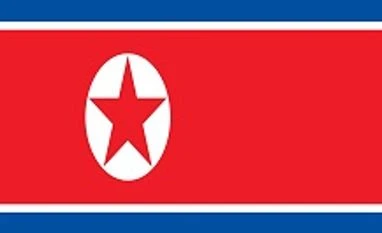North Korea is rolling out an on-demand TV catch-up service, allowing people with some sort of internet access to enjoy the highly-propagandised output of its four state-run TV channels at their leisure.
The system, which goes by the name "Manbang" ("Everywhere"), functions like a sharply pared-down Netflix with an on-demand service menu that divides programming by channel and genre.
Viewers can scroll through the day's programmes — usually aired during a 3:00 p.m.- 11:00 p.m. window — and select a particular TV show to watch at their leisure.
A programme introducing the service that aired on Korean Central Television (KCTV) last week said it was available to any institute, company or household that subscribes to North Korea's state-operated intranet.
The number of intranet subscribers in North Korea is unknown, but KCTV said "hundreds" of people had signed up to the Manbang service in Sinuiju — one of three cities where the system is being rolled out.
Set up in 2000, the intranet only allows access to selected, government-approved websites and mostly functions as a communication platform between government agencies, universities, industry and commerce.
More From This Section
Outside of hotels catering to foreigners, access to the full-blown Internet in North Korea is for the super-elite only — a few hundred people or maybe 1,000 at most.
The KCTV programme interviewed a housewife who explained how she had been able to perfect a recipe by watching and re-watching her favourite cooking programme.
The new service "demonstrates a technological advancement," said Martyn Williams, editor of the North Korea Tech website.
"But it is unclear how many apartment buildings and houses in North Korea have access to the kind of high-speed data service that such a service relies on," Williams said.
The service also provides access to selected study sources, suggesting it could be used to enhance distance learning.
)